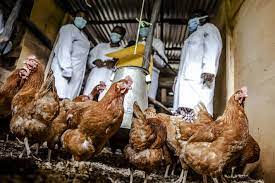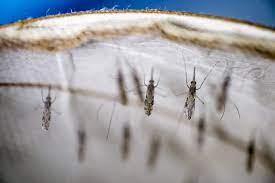The call comes ahead of the UN Food Systems Summit which takes place in New York on 23 September 2021 where countries will discuss ways to transform global food systems.
The Global Leaders Group on Antimicrobial Resistance includes heads of state, government ministers, and leaders from private sector and civil society. The group was established in November 2020 to accelerate global political momentum, leadership and action on antimicrobial resistance (AMR) and is co-chaired by their Excellencies Mia Amor Mottley, Prime Minister of Barbados, and Sheikh Hasina, Prime Minister of Bangladesh.
Reducing the use of antimicrobials in food systems is key to conserving their effectiveness
The Global Leaders Group’s statement calls for bold action from all countries and leaders across sectors to tackle drug resistance.
A top priority call to action is to use antimicrobial drugs more responsibility in food systems and markedly reduce the use of drugs that are of greatest importance to treating diseases in humans, animals and plants.
Other key calls to action for all countries include:
- Ending the use of antimicrobial drugs that are of critical importance to human medicine to promote growth in animals.
- Limiting the amount of antimicrobial drugs administered to prevent infection in healthy animals and plants and ensuring that ll use is performed with regulatory oversight.
- Eliminating or significantly reducing over-the-counter sales of antimicrobial drugs that are important for medical or veterinary purposes.
- Reducing the overall need for antimicrobial drugs by improving infection prevention and control, hygiene, biosecurity and vaccination programmes in agriculture and aquaculture.
- Ensuring access to quality and affordable antimicrobials for animal and human health and promoting innovation of evidence based and sustainable alternatives to antimicrobials in food systems.
Inaction will have dire consequences for human, animal, plant and environmental health
Antimicrobial drugs- (including antibiotics, antifungals and antiparasitics)- are used in food production all over the world. Antimicrobial drugs are administered to animals not only for veterinary purposes (to treat and prevent disease), but also to promote growth in healthy animals.
Antimicrobial pesticides are also used in agriculture to treat and prevent diseases in plants.
Sometimes antimicrobials used in food systems are the same as or similar to those used to treat humans. Current usage in humans, animals and plants is leading to a concerning rise in drug resistance and making infections harder to treat. Climate change may also be contributing to an increase in antimicrobial resistance.
Drug-resistant diseases already cause at least 700,000 human deaths globally every year.
Whilst there have been substantial reductions in antibiotic use in animals globally, further reductions are needed.
Without immediate and drastic action to significantly reduce levels of antimicrobial use in food systems, the world is rapidly heading towards a tipping point where the antimicrobials relied on to treat infections in humans, animals and plants will no longer be effective. The impact on local and global health systems, economies, food security and food systems will be devastating.
“We cannot tackle rising levels of antimicrobial resistance without using antimicrobial drugs more sparingly across all sectors,” says co-chair of the Global Leader Group on Antimicrobial Resistance, Her Excellency Mia Amor Mottley, Prime Minister of Barbados. “The world is in a race against antimicrobial resistance, and it’s one that we cannot afford to lose.’
Reducing the use of antimicrobial drugs in food systems must be a priority for all countries
“Using antimicrobial drugs more responsibly in food systems needs to be a top priority for all countries,” says Global Leaders Group on Antimicrobial Resistance co-chair Her Excellency Sheikh Hasina, Prime Minister of Bangladesh. “Collective action across all relevant sectors is crucial to protect our most precious medicines, for the benefit of everyone, everywhere.”
Consumers in all countries can play a key role by choosing food products from producers that use antimicrobial drugs responsibly.
Investors can also contribute by investing in sustainable food systems.
Investment is also urgently needed to develop effective alternatives to antimicrobial use in food systems, such as vaccines and alternative drugs.












